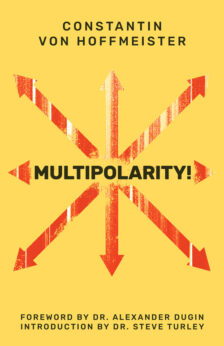The critiques of Soviet power in the twentieth century by ideological Marxists were often significantly sharper than those offered by right-wing thinkers. Traditionalists and reactionary modernists refuted the very theoretical framework within which communist ideology existed from the standpoint of political ontology. For sincere Marxists, the situation appeared differently — they saw in Soviet power a symbol of betrayed expectations and unfulfilled promises. Accepting its initial aims, they were horrified by what communism had become in practice, and, even while remaining loyal to the tenets of Marx and the values of utopian socialism, they could not speak of it in any positive terms.
This story is particularly vivid in the case of Guy Debord (1931-1994), a French radical leftist thinker, the founder and leader of the influential Situationist Movement in the 1950s and 1960s, and the author of The Society of the Spectacle, which ensured his theoretical immortality. In the fourth chapter of this book, ‘The Proletariat as Subject and Representation’, Debord subjects Stalinism to ruthless criticism. He writes: ‘Stalinism made it evident to everyone that there was never an intention to restore what had been alienated. At this stage, ideology is no longer a weapon but a goal. The lie, no longer refutable, becomes madness. The surrounding reality, and even the goal itself — ideology — dissolves into totalitarian propaganda: everything it asserts must be accepted as truth. It is a parochial, primitive spectacle, but its role in the development of the global spectacle is nonetheless immense. The ideology embodied in it did not transform the world, unlike capitalism, which reached a stage of excess — it simply policed the transformation of perception.’ The French thinker explains this metamorphosis: ‘When ideology, possessing absolute power, becomes absolute and transforms from private knowledge into totalitarian falsehood, historical thinking is destroyed so thoroughly that history itself, even on an empirical level, ceases to exist.’
Thus, the consistent Marxist Guy Debord identified the key features of Stalinism — total falsehood multiplied by absolute cruelty. Remaining enchanted by the Leninist myth of revolutionary transformation, the French thinker found no possibility to support Stalinism, which, following Julius Evola, we might well consider the next logical step in the evolution of the ruthless Bolshevik tyranny. However, such recognition remained unacceptable to Debord throughout his life — despite dissolving the Situationist International in 1972, he remained loyal to the left-wing idea. His rebellion against the limitless hypocrisy of the ‘society of the spectacle’ was never transformed into a genuinely creative existential project.







